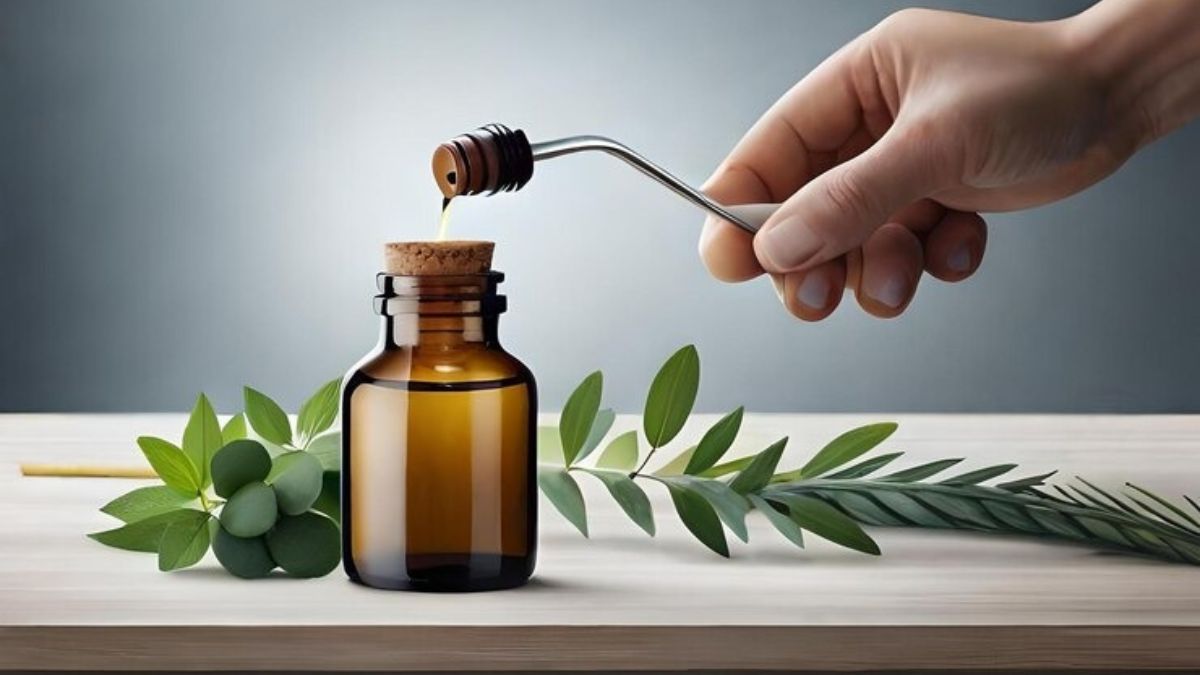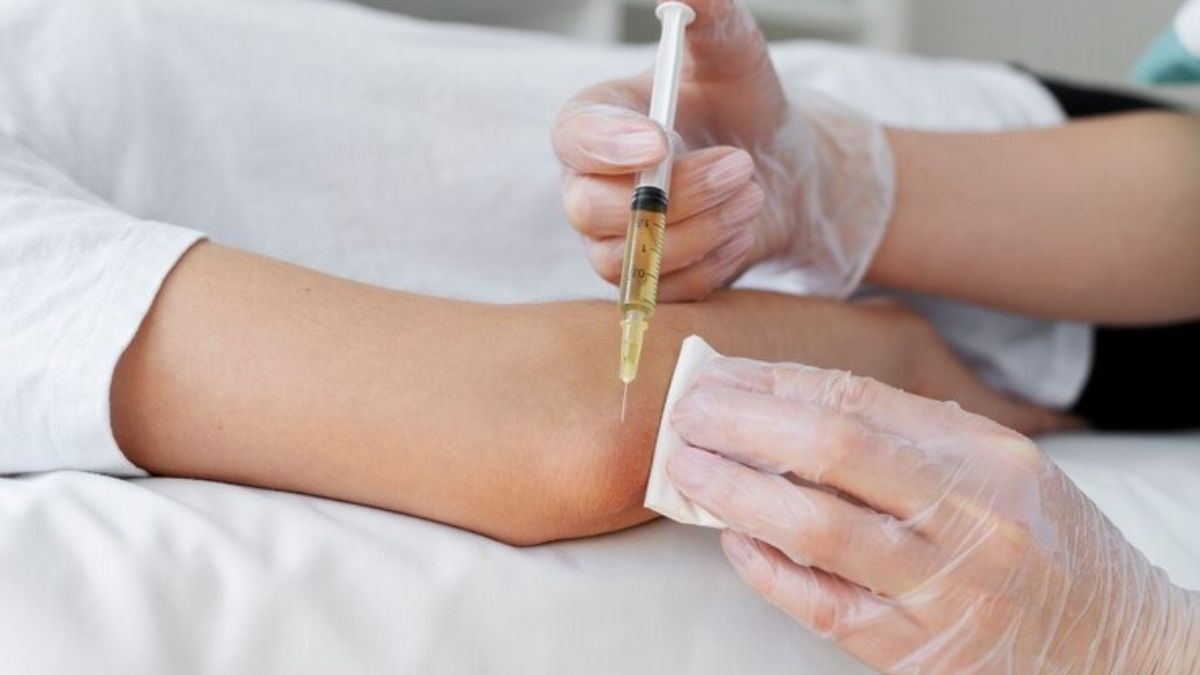HEALTH
Tongue Scrapers: Boost Oral Health Now

HEALTH
Unlocking the Benefits of Paraffin Wax: A Comprehensive Guide

Paraffin Wax: Petroleum is the source of paraffin wax’s, a substance with a wide range of uses in numerous sectors. It’s widely available, inexpensive, and user-friendly. This article will examine paraffin wax’s composition, characteristics, applications, advantages, disadvantages, production method, safety issues, substitutes, and potential future trends.
Composition and Properties
What is paraffin wax made of?
Saturated hydrocarbons with long-chain molecules ranging from C20 to C40 make up the majority of paraffin wax’s. These molecules come from the process of refining crude oil.
Physical properties of paraffin wax
At ambient temperature, paraffin wax’s is solid; when heated, it becomes liquid. It is appropriate for several uses, including wax treatment and candle production, because to its low melting point, which is normally between 46°C and 68°C (115°F and 154°F).
Common Uses of Paraffin Wax
Paraffin wax’s finds wide-ranging applications in different industries:
Candle making
Making candles is one of the most popular uses for paraffin wax’s. For candle makers, its superior color and smell retention makes it their first choice.
Medical applications
Physical therapists utilize paraffin wax baths to treat joint disorders such as arthritis. The wax relieves achy muscles and joints by assisting in the retention of heat and moisture.
Industrial uses
Rubber, tire, and paper industries use paraffin wax’s to lubricate and give water resistance.
Benefits of Paraffin Wax
Paraffin wax offers several benefits:
Versatility
Its adaptability makes it suitable for usage in a variety of goods and sectors, including industrial applications, cosmetics, and candles.
Low cost
When compared to other waxes, paraffin wax is comparatively cheap, which makes it appealing for a range of uses.
Easy availability
It is easy for producers to source because it is widely available in the market.
Melting point
Paraffin wax is easy to work with because of its low melting point, particularly when manufacturing candles and using it for therapeutic purposes.
Drawbacks and Concerns
Although paraffin wax is widely used, there are certain disadvantages and issues with it.
Petroleum-based
Paraffin wax’s petroleum-based origins give rise to questions regarding its sustainability and its effects on the environment.
Potential for contamination
Paraffin wax may contain contaminants from the refining process, which raises questions over its safety and purity, particularly when used in food and cosmetic applications.
Environmental impact
Paraffin wax production and disposal have the potential to increase greenhouse gas emissions and contamination of the environment.
How Paraffin Wax is Made
Extraction and refinement process
The process of refining crude oil yields paraffin wax’s. To separate the wax molecules, this procedure entails crystallization, solvent extraction, and distillation.
Purification techniques
Following extraction, contaminants are removed and quality is improved by subjecting the paraffin wax’s to additional purification procedures including hydrogenation and filtration.
Safety Precautions
Handling precautions
It’s crucial to take safety measures when working with paraffin wax’s in order to prevent burns and fire threats. While pouring hot wax and melting it, proper ventilation is also necessary.
Fire hazards
Paraffin wax’s should not be near heat sources or open flames because it is combustible. Use an appropriate container and heating equipment at all times when melting wax, and never leave it unattended.
Alternatives to Paraffin Wax
As environmental concerns become more widely known, substitutes for paraffin wax’s are being investigated.
Soy wax
Because it is made from soybean oil, soy wax is thought to be a more environmentally friendly option than paraffin wax’s.
Beeswax
Another natural substitute for paraffin wax’s is beeswax, which is made by honeybees and has a pleasing scent as well as clean burning characteristics.
Future Trends in Paraffin Wax Industry
Sustainability efforts
There are initiatives in place to improve recycling and disposal practices, investigate substitute feedstocks, and make paraffin wax’s production and use more environmentally friendly.
Research and development
The goal of research and development is to create new paraffin wax’s compositions with enhanced qualities and less of an adverse effect on the environment.
Conclusion
Paraffin wax is an adaptable substance with a wide range of uses in different sectors of the economy. Its affordability and simplicity of use are just two of its many advantages; safety and environmental effects are also causes for concern. There are initiatives happening to investigate alternatives and make paraffin wax production and use more sustainable as knowledge of these issues rises.
FAQs
Is paraffin wax’s safe for skin?
Generally speaking, paraffin wax’s is harmless for skin when applied topically and medicinally. To prevent burns, however, care should be used.
Can paraffin wax’s be recycled?
It is possible to recycle paraffin wax’s by dissolving it and removing any contaminants. For some applications, the recycling method might not be practical, though.
What are the environmental concerns associated with paraffin wax’s?
Due to its petroleum origins, paraffin wax’s production and disposal may contribute to greenhouse gas emissions and environmental degradation.
Are there any health risks associated with inhaling paraffin wax’s fumes?
Long-term breathing in of paraffin wax’s fumes might irritate the respiratory system. It is advisable to have adequate ventilation when handling heated wax.
What are some sustainable alternatives to paraffin wax’s?
Beeswax, palm, and soy wax are sustainable substitutes for paraffin wax’s since they come from renewable resources and have less of an adverse effect on the environment.
HEALTH
Sweet Oil for Ears: A Natural Solution for Ear Health

For ages, people have been using sweet oil, sometimes called olive oil, as a natural cure for a variety of illnesses, including ear problems. This post will discuss the advantages of using sweet oil to maintain the health of your ears and how it can help with common ear issues.
Composition of Sweet Oil
Natural ingredients, mostly olive oil, make up sweet oil. Olive oil is a great option for ear care since it has fatty acids and antioxidants that can help calm and hydrate the skin. Sweet oil softens earwax and makes it easier to remove when applied to the ears.
Earwax Removal
Sweet oil’s ability to soften and make earwax simpler to remove is one of its main advantages for ears. A few drops of sweet oil applied to the ear canal and left for a few minutes can allow the oil to permeate the earwax, softening it and making it simpler to remove using an irrigation tool or cotton swab.
Moisturizing and Soothing
Sweet oil has the ability to calm and hydrate the skin inside the ear canal in addition to helping remove earwax. This can be particularly helpful for people who have dryness or irritation in their ears, relieving discomfort and improving ear health in general.
Antibacterial Properties
Additionally, sweet oil has antibacterial qualities that aid in ear infection prevention and healing. You can lower your risk of infection by periodically cleaning and eliminating harmful bacteria from the ear canal by applying sweet oil to your ears.
Application Methods
It’s easy and simple to use sweet oil on ears. Tilt your head to one side and gently pull your outer ear forward and backward to straighten the ear canal before applying sweet oil. Next, apply a few drops of sweet oil to the ear canal using a dropper, let it stay for a few minutes, and then gently wipe away any extra oil.
Safety Considerations
Although using sweet oil to the ears is generally safe, there are a few things to be aware of. If you have a perforated eardrum or feel any pain or discomfort after using the oil, stay away from sweet oil. Additionally, it’s best to speak with a healthcare provider if you have any concerns about using sweet oil.
Alternative Uses
Apart from its advantageous effects on ear health, sweet oil has multiple other applications. It works well as a natural treatment for dry hair and scalp or applied topically as a moisturizer or massage oil.
Effectiveness Compared to Other Methods
Sweet oil is frequently contrasted with over-the-counter ear drops and home cures when it comes to ear care. Many individuals choose sweet oil because of its natural ingredients and gentle application, even though all of these approaches can be useful in dissolving earwax and easing discomfort.
Consulting with a Healthcare Professional
It’s imperative to speak with a medical expert if you have any questions concerning the condition of your ears or if you notice any strange symptoms. Based on your unique needs and situation, they can offer tailored recommendations and advise.
Conclusion
Finally, sweet oil provides a safe, all-natural way to maintain healthy ears by preventing infections, softening earwax, and moisturizing skin. You may support overall wellbeing and preserve healthy ears by adding sweet oil to your ear care regimen.
FAQs
Can sweet oil be used for ear infections?
Sweet oil isn’t a cure for infections that already exist, but it can help avoid them by keeping the ear canal clean. It is imperative that you seek medical attention if you think you may have an ear infection.
How often should I use sweet oil for earwax removal?
Depending on personal demands, sweet oil use for earwax removal can vary in regularity. Using sweet oil once or twice a week is generally safe, but it’s important to heed the advice of your healthcare practitioner.
Is sweet oil safe for children?
Although sweet oil is usually safe to use on children, it’s still important to exercise caution and see a pediatrician before putting it in their ears.
Can sweet oil cause hearing loss?
Sweet oil shouldn’t cause hearing loss if used correctly. It is imperative that you seek medical assistance if you have any pain, discomfort, or changes in hearing following the use of sweet oil.
Where can I purchase sweet oil?
Sweet oil, sometimes referred to as olive oil, is available in most pharmacies and grocery stores. For the best quality, look for extra virgin olive oil that has been cold-pressed.
HEALTH
Lipotropic Injections: Boost Your Energy and Metabolism Naturally

If you’re trying to get healthier and feel better, you might have heard about lipotropic injections as a possible option. However, describe them precisely and explain how they can help you. This article will examine the realm of lipotropic injections, including their components, advantages, and usage considerations.
Ingredients in Lipotropic Injections
Ingredients for lipotropic injection’s usually include methionine, choline, inositol, and vitamin B12. Together, these substances assist a number of bodily processes, such as fat metabolism and liver health.
Weight Loss and Lipotropic Injections
The ability of lipotropic injection’s to facilitate weight loss is one of their most well-known advantages. When paired with a nutritious diet and regular exercise, these injections can help people lose weight more successfully by increasing metabolism and promoting fat breakdown.
Energy Boosting Effects
Liposuction injections are well known for their ability to increase energy levels in addition to helping with weight loss. These injections can help people feel more energised and productive throughout the day by boosting energy levels and preventing weariness and sluggish.
Liver Health and Detoxification
The capacity of lipotropic injection’s to promote liver health and cleansing is an additional advantage. The liver is essential for eliminating toxins from the body, and lipotropic injections can help increase the liver’s performance, which will benefit general health and wellbeing.
Safety and Side Effects
Although lipotropic injections are generally regarded as safe when given by a licensed medical professional, there are a few possible hazards to be mindful of. Injection site reactions, allergic responses, and drug interactions are a few examples of these. Before beginning therapy, it is imperative to go over the possible risks and benefits with your healthcare professional.
Lipotropic Injections vs. Oral Supplements
Is it true that lipotropic injections work better than oral supplements? This is a frequently asked question. Although both may offer comparable advantages, lipotropic injections might be more effective and quickly acting because they enter the bloodstream directly.
Administration and Frequency
Depending on each person’s needs and objectives, the frequency of lipotropic injections can change. Weekly injections might help some people, while others might only need them when necessary. It’s critical to go by the administration and frequency guidelines made by your healthcare practitioner.
Cost Considerations
The cost of lipotropic injections is frequently a major consideration. Many people consider these injections to be a good investment in their health and well-being, even if they may cost more than oral vitamins.
Patient Experiences and Testimonials
Hearing about actual experiences can be beneficial for anyone thinking about getting lipotropic injections. A great deal of people have experienced improvements in their general health, weight loss, and energy levels. But it’s important to keep in mind that individual outcomes may differ.
Consulting with a Healthcare Professional
It is important to speak with a licensed healthcare provider prior to receiving lipotropic injections. They are able to evaluate your unique requirements and decide if lipotropic injections are a good fit for you. They can also offer advice on how to administer the medication correctly and keep an eye out for any possible adverse effects.
Conclusion
To sum up, lipotropic injection’s provide a safe, all-natural means of increasing energy, aiding in weight loss, and supporting liver function. Though they might not be appropriate for every person, numerous people have discovered them to be a beneficial supplement to their daily routine for well-being. If lipotropic injections are something you’re thinking about, make sure you speak with a medical expert to go over your options and figure out what’s best for your health and wellbeing.
FAQs
What are lipotropic injection’s used for?
Lipotropic injection’s can support weight loss, increase energy levels, and maintain the health of the liver.
Do lipotropic injection’s help with weight loss?
Yes, by accelerating metabolism and facilitating the breakdown of fat, lipotropic injection’s can help reduce weight.
Are lipotropic injection’s safe?
Lipotropic injection’s are generally regarded as safe when given by a licensed healthcare provider. There are, nevertheless, a few possible hazards and adverse consequences to be mindful of.
How often should I get lipotropic injection’s?
Depending on each person’s needs and objectives, the frequency of lipotropic injection’s can change. It is advisable to heed the advice of your healthcare provider.
Can I get lipotropic injection’s without a prescription?
Generally given by a medical expert, lipotropic injection’s may need a prescription, based on the particular formulation and your location.
-

 TECNOLOGY5 months ago
TECNOLOGY5 months agoTech4SEO: Optimizing SEO Performance with Tech
-

 FASHION5 months ago
FASHION5 months agoLeather Pants for Men: Unveiling the Timeless Trend
-

 FASHION5 months ago
FASHION5 months agoWarm Sweaters: Embracing Cozy Style in Chilly Weather
-

 FASHION5 months ago
FASHION5 months agoBridal Jewellery: Adorning Love and Tradition
-

 CRYPTO4 months ago
CRYPTO4 months agoExploring Staxum Crypto: A Comprehensive Guide
-

 INFORMATION5 months ago
INFORMATION5 months agoWaterways Journal Magazine: Navigating World of Water Transport
-

 GAMES5 months ago
GAMES5 months agoThe Gameboy Color: A Journey Through Nostalgia
-

 INFORMATION4 months ago
INFORMATION4 months agoSkypessä: Revolutionizing Communication in the Digital Age
